- feeds
- popular
- recent
- reader
- about
- story
- technologies
- what is rss
- connect
- dmca
- contact
- Feed Preview In the Lab – Asian Scientist Magazine
Green Bioplastics Can Help Reduce Plastic Waste In Japan
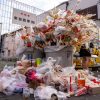
A new study sheds light on the potential of green bioplastics in achieving Japan’s carbon-neutral goals.
Ethics Of Using Care Robots For Older People
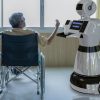
Study from Japan shows that involving older people while developing care robots for them will help alleviate their concerns about using robots.
https://www.asianscientist.com/2023/10/in-the-lab/ethics-of-using-care-robots-for-older-people/
Trajectoids Trace A Predefined Path
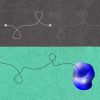
Researchers have developed an algorithm, which can be used to design shapes that roll down predefined trajectories. This research has applications in robotics.
https://www.asianscientist.com/2023/09/in-the-lab/trajectoids-trace-a-predefined-path/
Involved Fathers Help Children Have Better Social And Motor Skills

The study from Japan also showed that when fathers were more involved, mothers experienced less parental stress.
Why Does This Indian Lake Foam So Much?
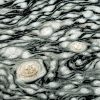
Rains dissolve surfactants bound to lake sediments causing foaming in Bellandur lake, shows a study.
https://www.asianscientist.com/2023/09/in-the-lab/why-does-this-indian-lake-foam-so-much/
Weathering Makes Microplastics Even More Toxic
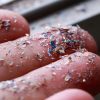
Microplastics that have undergone natural weathering acted as harmful neurotoxins in mice, shows a study from South Korea.
https://www.asianscientist.com/2023/08/in-the-lab/weathering-makes-microplastics-even-more-toxic/
How Childhood Trauma Causes Mental Health Disorders In Adult Life

Twin experiments by researchers in South Korea reveal the mechanism underlying adverse effects of stress hormones on a child’s brain.
How COVID-19 Puts Maternal and Fetal Health At Risk
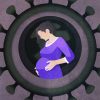
The study explains underlying molecular changes that occur in placenta during COVID-19 infection, and urges pregnant women with COVID-19 symptoms to get tested.
BacCam: Capturing Images In DNA
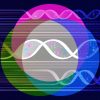
Bacterial Camera is able to store images directly in living bacteria using optogenetics and DNA barcodes.
https://www.asianscientist.com/2023/08/in-the-lab/baccam-capturing-images-in-dna/
A Sweet Solution For Better Chemotherapy
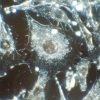
Mannose, a fruit sugar toxic to honeybees, can improve the efficacy of chemotherapy, shows a study from Japan.
https://www.asianscientist.com/2023/08/in-the-lab/a-sweet-solution-for-better-chemotherapy/
Alcohol Abuse Linked To More Diseases

A total of 61 diseases are now associated with alcohol abuse, reveals a new study by researchers in China and the UK.
https://www.asianscientist.com/2023/08/health/alcohol-abuse-linked-to-more-diseases/
How Fear Affects What We See
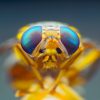
Scientists in Japan have identified a cluster of neurons in fruit flies that control their instinct to avoid potentially scary objects.
https://www.asianscientist.com/2023/08/in-the-lab/how-fear-affects-what-we-see/
Excessive Groundwater Extraction Has Shifted The Earth’s Spin Axis
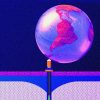
The findings also show that excessive groundwater pumping is contributing to rising sea levels.
Gravitational Waves Reveal Universe’s Expansion

Gravitational wave cosmology is opening a new window into the universe’s past.
https://www.asianscientist.com/2023/07/in-the-lab/gravitational-waves-reveal-universes-expansion/
This New Antibody Drug Could Slow Down Cancer
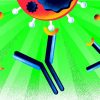
PRL3-zumab, an antibody drug targeting a protein in cancer cells, has shown safety and efficacy in clinical trials.
You’d Be Able To Smell Your Virtual World Soon

Scientists have developed soft and flexible wearables that recreate a wide range of smells for virtual reality applications.
https://www.asianscientist.com/2023/07/in-the-lab/youd-be-able-to-smell-your-virtual-world-soon/
A New Ultrafast Camera Captures Molecular Dynamics In Cells
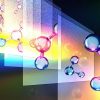
A new imaging technique can capture dynamic interactions of single molecules at 10,000 frames per second.
Why Are There So Few Women in Ecology
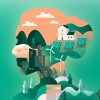
Women scientists continue to be underrepresented in ecology and evolution research, shows a study.
https://www.asianscientist.com/2023/06/in-the-lab/why-are-there-so-few-women-in-ecology/
Human ‘Blood Microbiome’ Disproved
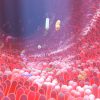
In the most comprehensive study to date, Singaporean researchers have debunked the existence of a shared microbial community in healthy human blood. The breakthrough offers a vital baseline to pr...
https://www.asianscientist.com/2023/06/in-the-lab/human-blood-microbiome-disproved/
Trapping Toxins to Prevent Sepsis
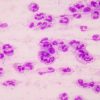
Researchers from Singapore have developed synthetic nanonets, which catch bacterial toxins and pro-inflammatory cytokine molecules, offering potential breakthroughs in sepsis treatment.
https://www.asianscientist.com/2023/06/in-the-lab/trapping-toxins-to-prevent-sepsis/
Saving Tigers Helped Reduce India’s Carbon Emissions
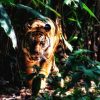
Research shows that tiger conservation interventions prevented forest loss, leading to reduced emissions and ecosystem benefits.
Population Immunity Shapes Evolution Of The Dengue Virus
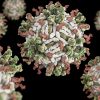
The study from India shows why it would be beneficial to develop dengue vaccines locally to counter regional strains.
Young Adults’ Mental Health In Singapore Need Urgent Attention

A new survey shines a light on the rates of depression and anxiety among Singapore’s youth.
Disgust Helps Animals Avoid Diseases
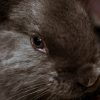
The study highlights significant variations in disgust behavior across species, influenced by their social systems and ecological niches.
https://www.asianscientist.com/2023/05/in-the-lab/disgust-helps-animals-avoid-diseases/
New Research Advances Treatment Of Male Infertility
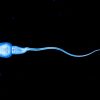
Researchers from Japan unveil a key mechanism of sperm maturation in mice models that can potentially be targeted to develop safe male contraceptives.
Rising Temperatures Add To The Suicide Burden

Living in non-optimum temperature is causing excessive deaths from suicides, finds a study from China.
https://www.asianscientist.com/2023/05/in-the-lab/rising-temperatures-add-to-the-suicide-burden/
Stem Cell Therapy Could Help Restore Vision
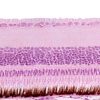
Researchers from Singapore and Sweden have developed a potentially viable stem cell therapy approach in preclinical models that can help replace lost photoreceptors.
https://www.asianscientist.com/2023/05/in-the-lab/stem-cell-therapy-could-help-restore-vision/
Plants Scream When Stressed
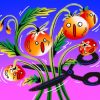
A new study reveals that plants emit ultrasonic sounds when they are dehydrated. Next step is to understand how insects interact with these sounds.
https://www.asianscientist.com/2023/05/in-the-lab/plants-scream-when-stressed/
Warming Climate May Endanger Asia’s Water Tower
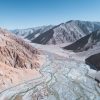
Climate models predict that melting glaciers and snowpacks in High Mountain Asia will make one of the largest freshwater reserves unsustainable, threatening water security for Asia's rapidly grow...
https://www.asianscientist.com/2023/05/in-the-lab/warming-climate-may-endanger-asias-water-tower/
Scientists Identify Protein That Contributes To Fibrosis
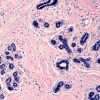
VGLL3 protein causes fibrosis in various internal organs by overproducing collagen.
